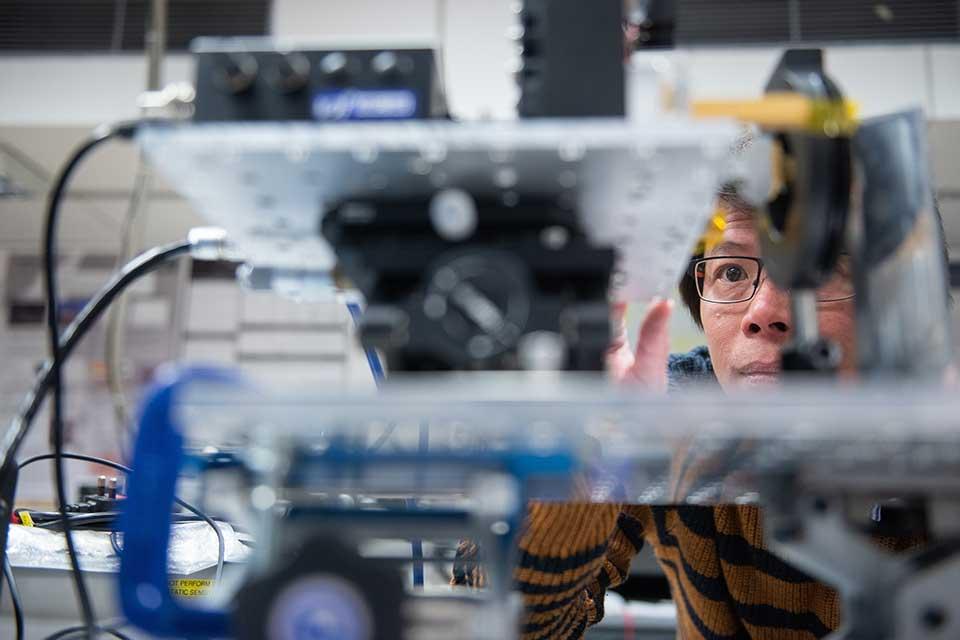Dr Boon Kok Tan is a senior researcher in astrophysics of the Department of Physics and has been awarded a European Research Council Consolidator Grant. The funding will help his work advancing ultra-sensitive instrumentation for microwave, millimetre (mm), sub-mm, and terahertz (THz) frequencies – developing superconducting parametric amplifiers (SPAs), a next-generation quantum device technology.
SPAs promise quantum-limited sensitivity and unprecedented performance across a broad frequency range, enabling breakthroughs in both fundamental physics and practical applications. Current ultra-sensitive receivers have already delivered remarkable discoveries, from imaging black hole event horizons to probing the cosmic microwave background and supporting quantum computing platforms. However, existing technologies face significant limitations, particularly at higher frequencies with large pixel count applications. This research project aims to overcome these barriers by extending the operational range of SPAs, paving the way for compact, highly sensitive, on-chip receivers that integrate seamlessly with other devices.
This innovation could transform THz astronomy, allowing observatories like the Event Horizon Telescope (EHT) and the Atacama Large Millimetre/sub-mm Array (ALMA) to perform high-resolution mapping with quantum-limited sensitivity. It will also be pivotal for upcoming initiatives like the Atacama Large Aperture Submillimetre Telescope (AtLAST) and far-infrared space missions, further enhancing our understanding of the universe. Beyond astronomy, these advances could enable faster dark matter searches, large-scale quantum computing beyond the microwave range, and even new technologies in telecommunications, medicine, and remote sensing.
Our work would allow us to explore the potential to replace traditional mm/sub-mm instrumentation with a single, integrable SPA technology which could revolutionise THz astronomy, expand the reach of dark matter searches, and bring practical quantum computing closer to reality. Ultimately, in the longer term, this research aims to pave the way to surpass the capabilities of silicon-based technologies, ushering in a new era of superconducting quantum electronics with far-reaching impacts on science, industry, and everyday life.
I was fortunate to have received an ERC Starter Grant, which allowed me to embark on the journey of developing SPA technology from the ground up at Oxford. Now, with the support of this Consolidator Award, I am thrilled to continue advancing into new and exciting directions with the team and international collaborators. This achievement would not have been possible without the invaluable support of my friends and colleagues at Oxford and beyond, who helped me fulfil the objectives of the Starter Grant and prepare the Consolidator project. I must express my deepest gratitude to the late and deeply missed Professor Ian Shipsey, whose unwavering advocacy for quantum device technology in the UK and internationally, as well as his steadfast support for this ERC project, played a crucial role in enabling this accomplishment.
Find out more about Dr Tan's Superconducting quantum detectors research group.
Dr Tan joins three other recipients at the University of Oxford: https://www.ox.ac.uk/news/2024-12-03-four-oxford-researchers-selected-european-research-council-consolidator-grants

